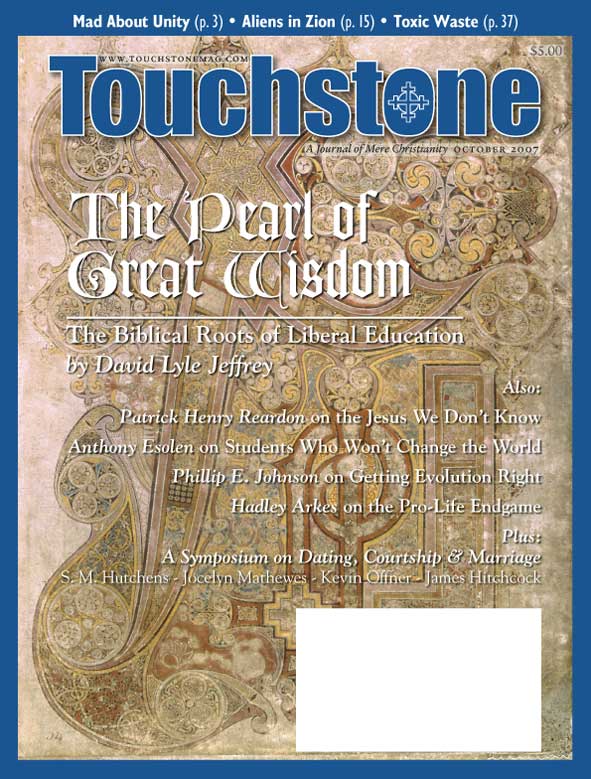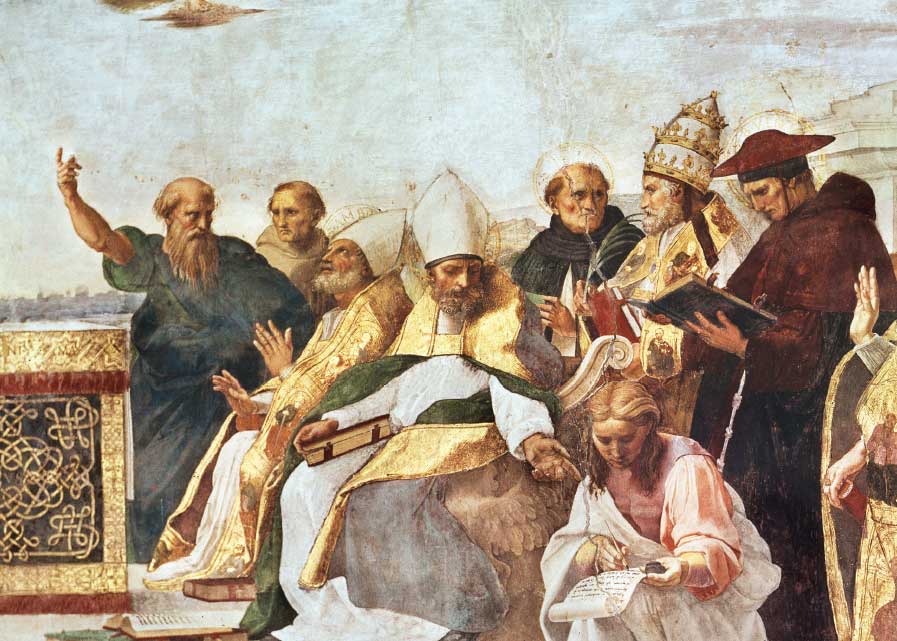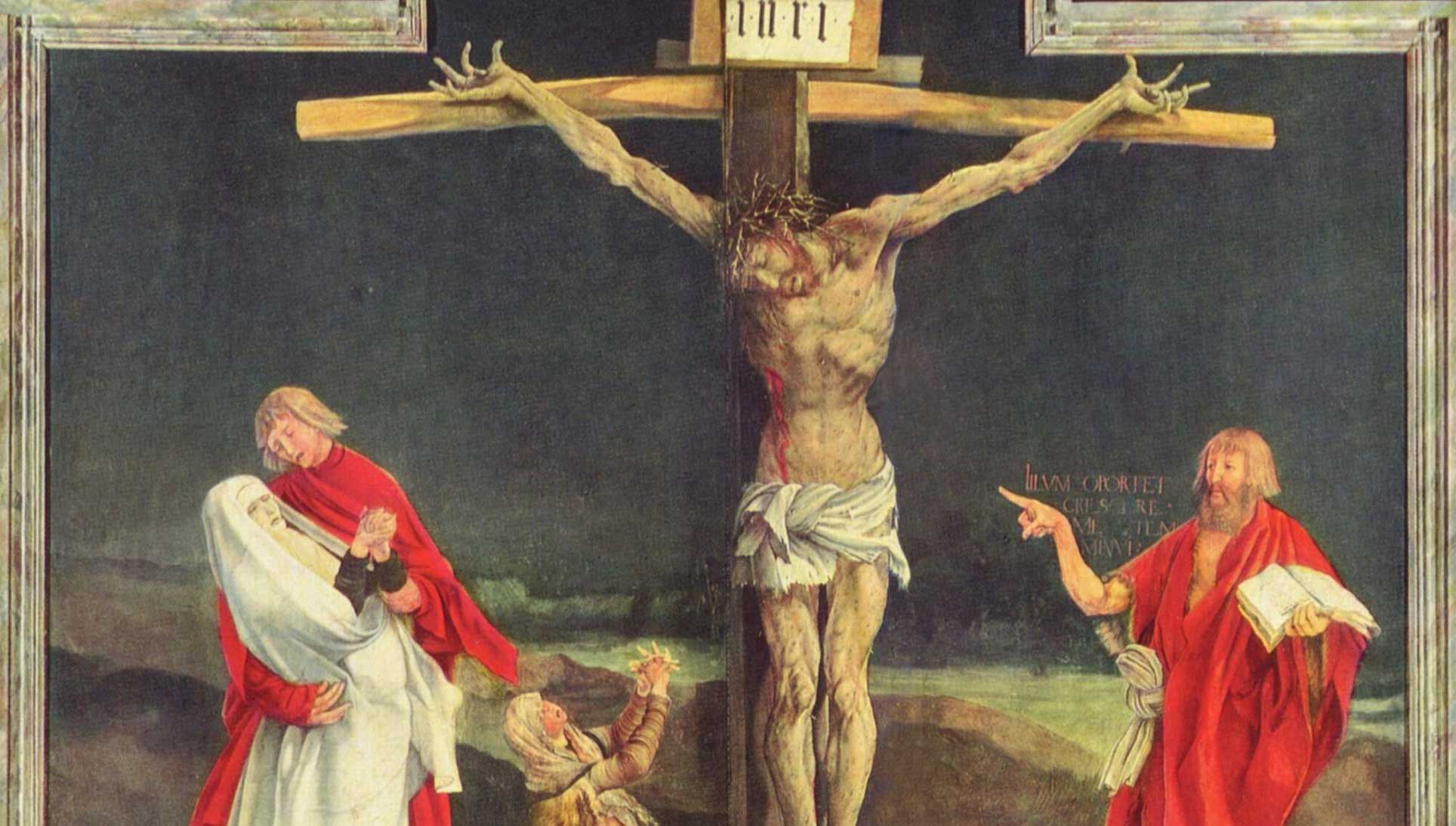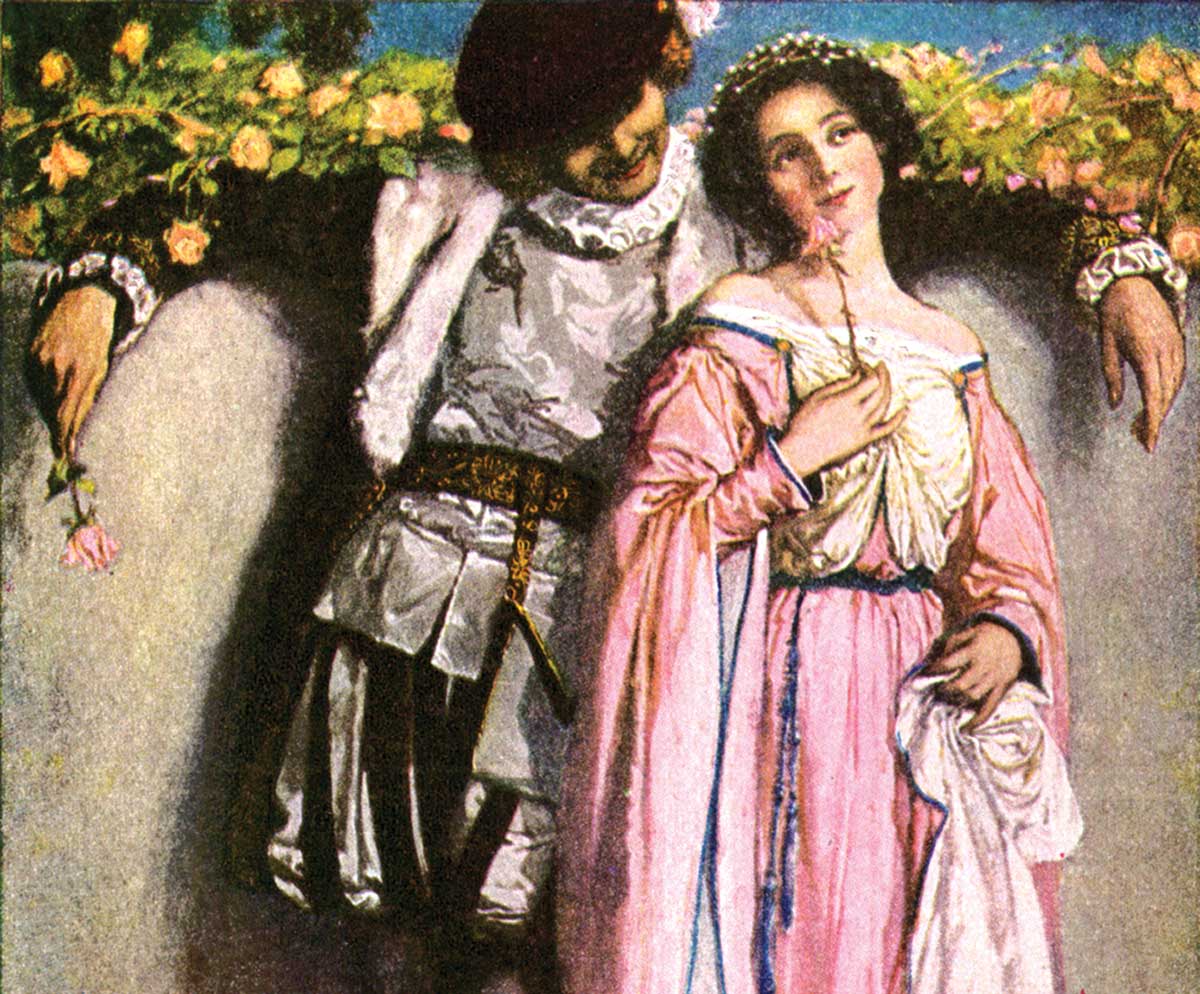The Pearl of Great Wisdom
The Deep & Abiding Biblical Roots of Western Liberal Education
What has Athens to do with Jerusalem?” Tertullian famously asked, while St. Jerome related a troubled dream in which “the Judge of all” accuses him of being not a Christian but a Ciceronian, and Alcuin admonished the monks of Lindisfarne, “What has Ingeld to do with Christ?”, each echoing St. Paul in his still more extreme warning to the Corinthian Greeks about both syncretism and idolatry: “What has Christ to do with Belial?”
“Caveat lector!” all three seem to say: A grave risk of theological adultery attends upon dalliance with pagan authors. It is as if they wanted to separate, even cordon off, humanistic learning from more “appropriate” spiritual preoccupations, and typical modern citations of these famous injunctions implicate Christianity in a certain dour abstemiousness where the liberal arts or belle-lettres are concerned.
But does such exclusivism accurately describe the biblical influence on the humanities in Western history? No. The rich tradition of liberal learning in the West has in fact remained at the most fundamental levels more biblical than classical. From the fountain of biblical study flowed not only a high order of widely applicable interpretative skills ( techné), but, more fundamentally, confidence in the crowning of knowledge with wisdom (its logos) continuously to correct and regenerate intellectual culture.
The classical goals of education, eloquentia et sapientia, eloquence and wisdom, cannot be successfully realized without a persevering reference to the higher and integrative wisdom of Sacred Scripture. Today, I will suggest briefly at the end, we have found to our cost that the secular substitute, lacking transcendence, cannot ground and integrate the humanities.
Citing the Pagans
In intellectual history, ironies and contradictions are the norm. Jerome himself defended a notably generous citation of pagan authors in his own writings, but did so ingeniously by an appeal to worthy precedent, namely, the practice of the biblical authors themselves. He thus established a pattern of argument and of intellectual and textual practice that tells us much about how it would be biblical, and not Roman, authors who would come eventually to provide the apologia for humane learning generally.
Jerome asserts that the Jewish biblical authors themselves make learned and thoughtful use of mid-eastern and Hellenic pagan literature (modern scholarship has confirmed many of his ascriptions in detail) and that St. Paul quotes from the Greek poets, such as Epimenides (Titus 1:12), Menander (1 Cor. 15:33), and Aratus (Acts 17:28). This, he says, establishes an order of appropriation self-confident enough that Paul can make skillful, fitting, often ironic use of alien instruments, much as when (Jerome says rather wryly) David uses Goliath’s own sword to hack off the fallen giant’s head.
Less humorously and yet tellingly for our subject, after citing the Deuteronomic laws permitting marriage to a captive woman, he asks: “What wonder . . . if I also, admiring the fairness of her from the grace of her eloquence, desire to make that secular wisdom which is my captive and my handmaid a rightful matron of the true Israel?”
Jerome goes on to cite a large bibliography of Jewish and Christian writers, bishops, and apologists, all of whom made deft use of Plato, Aristotle, Cicero, Virgil, and Quintillian to extend the reach and defend the claims of the gospel. But it is evident that pagan writers have not set the agenda.
David Lyle Jeffrey is Distinguished Professor Emeritus of Literature and the Humanities at Baylor University and Resident Distinguished Professor of Baylor Institute for Studies in Religion.
subscription options
Order
Print/Online Subscription

Get six issues (one year) of Touchstone PLUS full online access including pdf downloads for only $39.95. That's only $3.34 per month!
Order
Online Only
Subscription

Get a one-year full-access subscription to the Touchstone online archives for only $19.95. That's only $1.66 per month!
bulk subscriptions
Order Touchstone subscriptions in bulk and save $10 per sub! Each subscription includes 6 issues of Touchstone plus full online access to touchstonemag.com—including archives, videos, and pdf downloads of recent issues for only $29.95 each! Great for churches or study groups.
Transactions will be processed on a secure server.
more on education from the online archives
more from the online archives
calling all readers
Please Donate
"There are magazines worth reading but few worth saving . . . Touchstone is just such a magazine."
—Alice von Hildebrand
"Here we do not concede one square millimeter of territory to falsehood, folly, contemporary sentimentality, or fashion. We speak the truth, and let God be our judge. . . . Touchstone is the one committedly Christian conservative journal."
—Anthony Esolen, Touchstone senior editor













